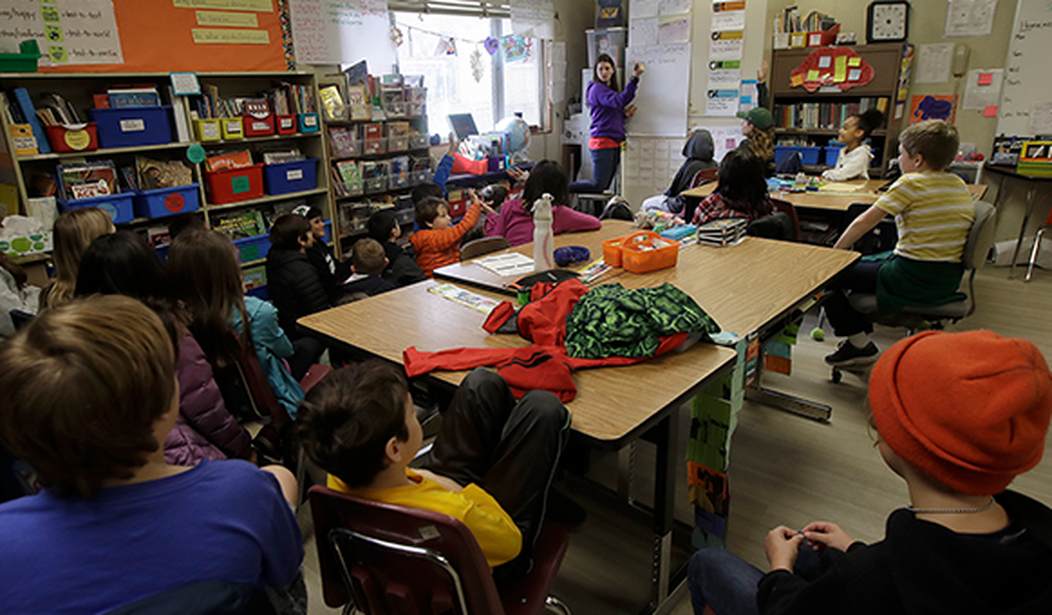At the beginning of the 2000s, the stars were aligned for broad-based educational reform. A Republican president had made it one of his signature issues and a Democratic Congress – operating in a much less partisan environment than exists currently – was ready to work with him to improve student outcomes across the country.
As the 2010s came to a close, the push for improvement had vanished, with many entrenched educational interests arguing that schools can’t improve until we solve all the other problems our students bring with them – so why bother trying.
If we want the 2020s to avoid the same fate, we need to commit to doing three things: stop bludgeoning beneficial ideas because of who they’re coming from; seriously rethink standardized testing; and continue to explore alternatives to traditional instruction.
I’ve previously written about that first point, commenting on the fact that because some ideas have become so intricately tied to certain individuals, those ideas and the individuals in support of them are, by default, rejected by the general public. As a result, innovative concepts are being ignored, progress is stalling, and politicians hoping to secure voter support are backtracking on concepts they formerly championed.
School choice is a perfect example. Of the 2020 Democratic presidential candidates, only Cory Booker (who dropped out just a few days into the new year) and Mike Bloomberg have spoken out in continued favor, even though the idea itself – students having the freedom to attend whatever school can meet their unique needs, regardless of zip code – is something that all of us can fundamentally be in favor of.
If we want this decade to be remembered for its positive contributions to the student experience, we must first stop associating ideas with which side of an aisle in Washington they came from and making knee-jerk decisions based on that alone. Then, we need to turn our attention to standardized testing.
Recommended
Standardized testing is riddled with issues, the first and worst of which is that it’s not measuring for things that matter. Rather than evaluating a student’s ultimate mastery of a given subject, many tests rely more heavily on recall than application. This means that students can cram information into their brains the night before their test, answer accordingly, and forget it within a few days or weeks without any repercussions. That is not a recipe for long-term success.
Speaking of repercussions, who is usually to blame when a student doesn’t do well on a test? The student. Too often we say, “Well, they should have studied more,” or “Well, they must not have been paying attention.” To an extent, both of these things may certainly be true, but shouldn’t we also be thinking about whether they are receiving this information in a way that works well for them?
This brings me to my third and final wish for 2020 and the years that follow: That we open our minds to new ways of learning. No two students are the same, yet we somehow expect all students to learn best from a centuries-old in-person lecture format. We expect most students to go to college if they want to be successful, and for some reason think that the business world and the education world should operate as separate entities.
We’re now seeing the negative effects of this thinking, with students scoring poorly on tests, taking it personally, and in extreme cases dropping out of the school system altogether. We’re seeing students enter into extremely expensive four-year programs without a strong sense of what they want to do and if they need to be there to do it, contributing to our current student debt crisis.
Could we better serve students by allowing them to learn online, at their own pace no less? Could we help students launch successful careers sooner by inviting industry to share what they do and what skills and experience someone needs if they’re interested in that line of work? I strongly believe the answer is a resounding “yes,” and know for a fact we already have the tools needed to do both.
Now, let’s not hesitate to use them, setting ourselves up for a decade’s worth of progress in public education we’ll one day be proud of.
























Join the conversation as a VIP Member